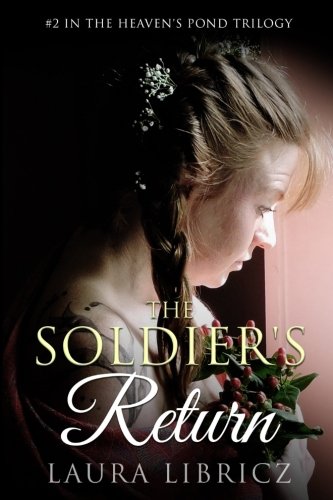The Soldier’s Return
Germany, 1636, and the Thirty Years’ War is raging in central Europe between Protestants and Catholics. It is also dividing the loyalties of people and empowering mercenaries and anyone else with any semblance of power with opportunities to make money, take over property or homes, displace residents or get food. The Soldier’s Return, the second book of the Heaven’s Pond Trilogy, follows a large cast of characters and two main plot lines against this background. The main tale is that of Pieter van Diemen, a deserter, who is trying to reach Sichardtshof, a farm in Franconia, where he hopes to find refuge with Katarina, a maid, and her master, Herr Tucher. The second is about Ralf, a Jesuit priest with his own agenda of ridding Franconia of witches and possibly taking control of Sichardtshof, too.
The Soldier’s Return is well researched. It intricately details the horrors of the Thirty Years’ War on a global, regional, and humanistic level. But the information and details overwhelm the story, making me feel like I was reading a documentary peopled with fictional characters. Both the main and secondary characters are flat or unlikeable, some even detestable, so it was hard for me to care about their plights. Other characters and subplots are mixed in but underdeveloped, such as the women Ralf named as witches.
The Soldier’s Return does an excellent job in depicting the horrors of the time and the immense struggles of the everyday people, but overdoes both at the expense of the fictional elements of the story.










